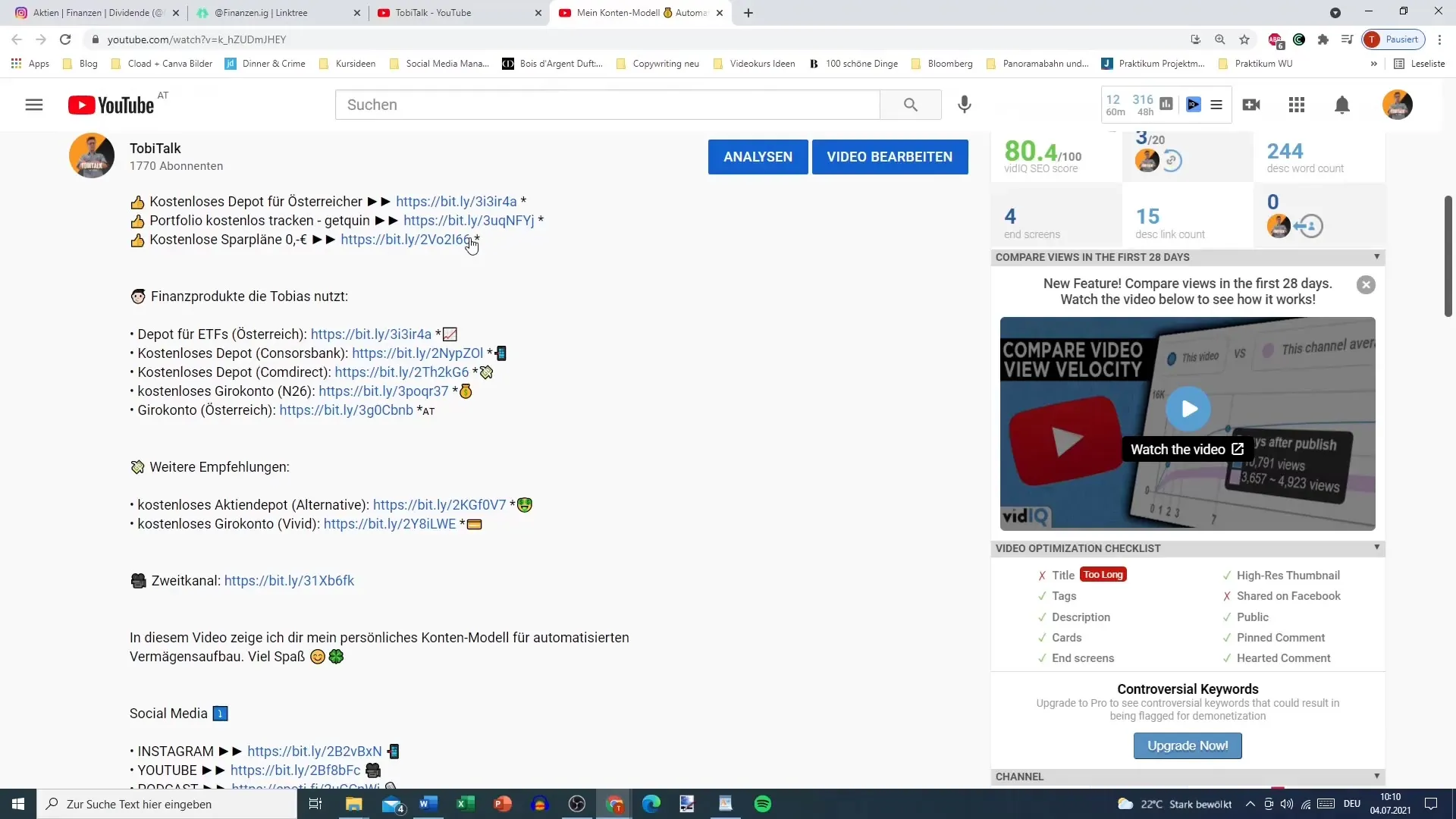You want to be successful in affiliate marketing? This is an exciting journey that, however, requires some legal and policy-related requirements. In this tutorial, you will learn about the important points you should definitely consider when using affiliate links. This revolves around the labeling obligation and the need for an imprint. These requirements apply not only to Instagram and YouTube, but to all platforms where you engage in affiliate marketing. So let's dive directly into the important details.
Key insights
- The labeling obligation of affiliate links is essential.
- An imprint must be present on every platform where you are active.
- Transparency towards your users can prevent legal problems.
Step-by-step guide
Step 1: The labeling obligation
You must ensure that all affiliate links are clearly labeled. This means that in your post, description, or even in accompanying text, you must clarify that these are affiliate links. This is particularly important to transparently show users that by clicking on these links, you may receive a commission.

Step 2: Creating an imprint
No matter which platform you are active on, an imprint is indispensable. For example, you can link to an imprint page on Instagram. Your contact details and information about your company should be included there. A missing imprint can quickly lead to problems that can even result in the suspension of your account.
Step 3: Implementation of policies in your content
It is not enough to just have the labeling and imprint – you must also consistently implement these in all your content. Make sure that all your posts, whether on social media, blogs, or videos, contain the necessary information. This way, you ensure that you meet all legal requirements and avoid difficulties from the beginning.
Step 4: Referring to affiliate links in the video
When creating a video, it is important to emphasize the importance of labeling affiliate links. You should mention the affiliate links in the description and clarify that it is advertising. For example, you can add a sentence stating: "All links with an asterisk are affiliate links." This explains to your viewers that you may earn income through clicks on these links.

Step 5: Checking the legal requirements
It is advisable to regularly check if you are complying with all legal requirements. Regulations can change, and it is important to always be up to date. You should also find out what specific requirements may apply to your particular platform.
Summary
The important points regarding the labeling obligation of affiliate links and the need for an imprint are cornerstones of your successful affiliate marketing operation. By consistently implementing these requirements, you not only protect yourself but also your followers. Adhering to these guidelines ensures transparency and trust, which are essential for building a long-term relationship with your target audience.
Frequently Asked Questions
What is the labeling obligation in affiliate marketing?The labeling obligation requires you to clearly state in your content when you use affiliate links to ensure transparency.
Why do I need an imprint?An imprint is necessary to comply with legal requirements and to give your users the opportunity to contact you.
What happens if I do not comply with the policies?Failure to comply with the policies can lead to legal consequences, including warnings and the suspension of your accounts.
What risk do I take if I do not have an imprint?Without an imprint, you risk legal issues, including the possibility of your account being suspended.
How often should I review my policies?You should regularly review your legal requirements and policies to ensure that you are always up to date.


